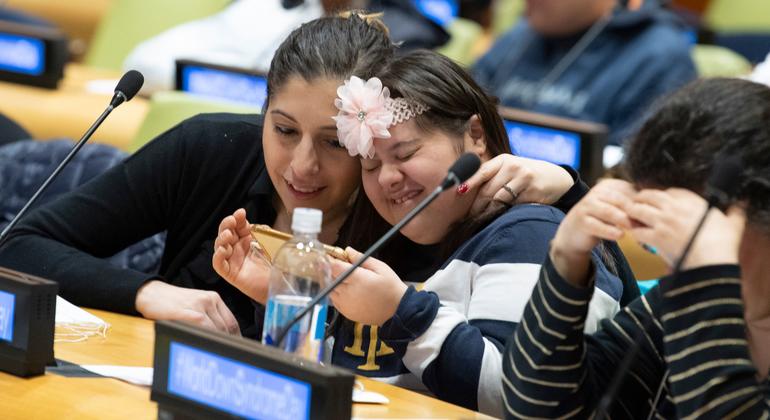The 17th Conference of State Parties to the Convention on the Rights of Persons with Disabilities, also known as COSP17, is currently underway from June 11 to June 13. This conference serves as the largest global disability rights-focused meeting, where individuals gather to ensure that countries are fulfilling their commitments to guarantee equality for all.
The main goal of COSP17 is to monitor the implementation of the Convention on the Rights of Persons with Disabilities, a landmark treaty signed by 191 UN Member States in 2008. This annual conference allows UN Member States and NGOs to present report cards on challenges and success stories related to disability rights. It also provides a platform for discussing new ways to eliminate remaining barriers so that individuals with disabilities can fully enjoy all their rights.
This year’s agenda for COSP17 includes three roundtable discussions focusing on current issues that will contribute to the Summit of the Future in September. These discussions center on international cooperation in humanitarian emergencies, opportunities for decent jobs and sustainable livelihoods, and technology innovations for building an inclusive future.
One of the key topics being addressed at COSP17 is the role of artificial intelligence (AI) in promoting accessibility for individuals with disabilities. AI-driven tools can scan websites, mobile apps, and other digital content to identify accessibility issues and provide recommendations for remediation. This technology can assist developers and content creators in ensuring that their products are accessible to individuals with disabilities from the design phase to technology upgrades.
Heba Hagrass, the Special Rapporteur on the rights of persons with disabilities, emphasized the potential of digital transformation in improving the lives of individuals with disabilities. This potential includes the availability of assistive devices, inclusive education, access to employment, healthcare, personalized support systems, and information and communication tools. Hagrass highlighted how digital transformation can help realize the paradigm shift brought about by the Convention on the Rights of Persons with Disabilities, empowering individuals with disabilities to be active members of their communities.
COSP17 will focus on promoting technology innovations and transfer towards social inclusion and empowerment for individuals with disabilities in various settings, from classrooms to the workplace. The conference aims to showcase some of these innovations at events like the recent AI for Global Good Summit.
One of the major challenges facing individuals with disabilities is accessing the job market. Eighty percent of the world’s people with disabilities reside in developing countries, where the rights to decent work and sustainable livelihoods are crucial. These rights are recognized in the Convention on the Rights of Persons with Disabilities and other key international development instruments such as the 2030 Agenda for Sustainable Development.
Efforts are being made to create more inclusive job markets for individuals with disabilities. The global report card on jobs shows a need for greater opportunities for people with disabilities to enter the workforce and contribute to society. By focusing on promoting technology innovations, improving access to education and training, and fostering a supportive environment for individuals with disabilities, COSP17 aims to build more inclusive job markets that benefit everyone.
In conclusion, the 17th Conference of State Parties to the Convention on the Rights of Persons with Disabilities is a crucial platform for advancing disability rights and promoting the inclusion of individuals with disabilities in all aspects of society. Through discussions on technology innovations, job market inclusivity, and other key issues, COSP17 aims to ensure that countries uphold their commitments to equality and empower individuals with disabilities to live fulfilling and meaningful lives.









